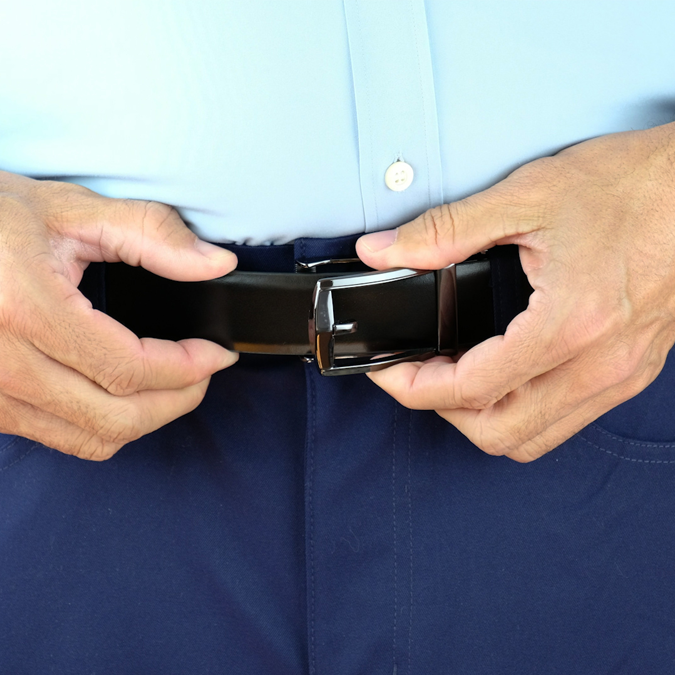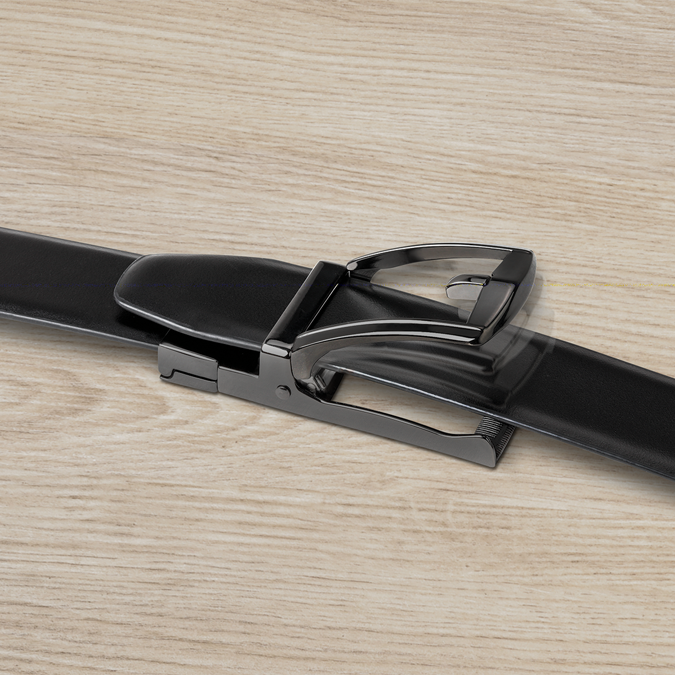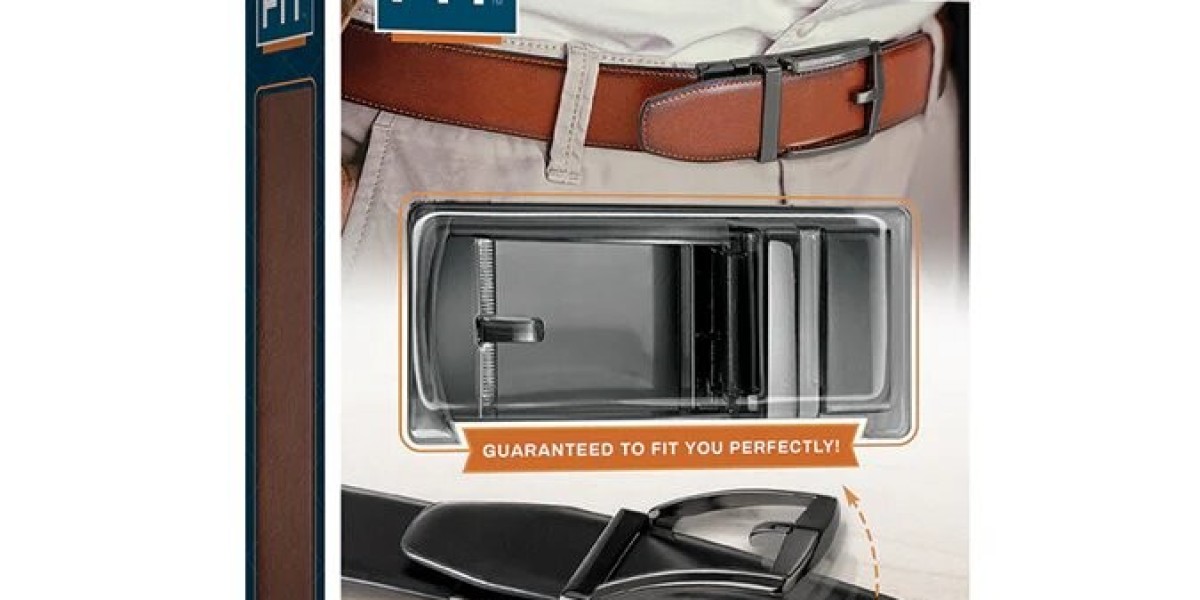Leather belts are more than just functional accessories; they are stylish additions to any outfit. Whether you’re dressing up for a formal occasion or going for a casual look, a well-chosen leather belt can make all the difference. This guide explores everything you need to know about leather belts, from their history and types to tips on choosing the perfect one.
The History of Leather Belts
Leather belts have a rich history that dates back thousands of years. Initially used for practical purposes, such as holding clothing together, they evolved into fashion accessories over time. Ancient civilizations like the Egyptians and Romans used leather to create sturdy belts, often adorned with decorative elements. By the Middle Ages, belts became a symbol of status and wealth, with nobility sporting elaborate designs. Today, leather belts have become a staple in wardrobes around the world, available in various styles, colors, and sizes.
Types of Leather Used in Belts
When it comes to leather belts, the type of leather used significantly impacts quality and durability. Full-grain leather is considered the highest quality, as it retains the natural texture and characteristics of the hide. Top-grain leather is slightly less durable but still offers a beautiful finish and is often used in higher-end belts. Genuine leather is more affordable and widely available, but it may not last as long as full-grain or top-grain options. Understanding these differences will help you choose the right leather belt for your needs.
How to Choose the Right Leather Belt
Choosing the right leather belt involves several considerations. Start by assessing your wardrobe and identifying the styles you wear most often. A classic black or brown belt is versatile and can be paired with various outfits. Next, consider the width of the belt; wider belts work well with casual attire, while narrower ones are better suited for formal wear. Pay attention to the buckle style, as it can also influence the overall look. Ultimately, choose a belt that complements your personal style while remaining functional.
The Importance of Belt Size
Finding the right size for your leather belt is crucial for both comfort and appearance. A belt that is too tight can be uncomfortable, while one that is too loose may not hold your pants in place. To determine your size, measure your waist where you typically wear your pants. Most belts are sized based on the distance from the buckle to the middle hole, so select a belt that allows for adjustments. If you’re between sizes, opt for the larger one, as it’s easier to adjust down than up.
Caring for Your Leather Belt
Proper care and maintenance can significantly extend the lifespan of your leather belt. Start by keeping it clean; use a damp cloth to wipe away dirt and sweat. Avoid exposing your belt to excessive moisture or direct sunlight, as this can lead to cracking and fading. Consider applying a leather conditioner periodically to maintain its suppleness and shine. If your belt gets wet, allow it to air dry at room temperature rather than using heat sources. By taking these simple steps, you can keep your leather belt looking great for years to come.
Different Styles of Leather Belts
Leather belts come in a variety of styles to suit different occasions and personal preferences. Casual belts typically feature simpler designs and may include embellishments like stitching or textured finishes. Dress belts are more refined, often made from higher-quality leather and featuring a sleek, polished buckle. Additionally, you can find fashion belts that incorporate unique elements such as colored leather or decorative buckles. Understanding the various styles available can help you choose the right leather belt for any outfit.
How to Match a Leather Belt with Outfits
Matching your leather belt with your outfit can enhance your overall appearance. For a classic look, coordinate your belt color with your shoes; a black belt pairs well with black shoes, while brown works with brown footwear. Consider the formality of the occasion; dress belts are ideal for business or formal events, while casual belts can complement relaxed outfits. Additionally, think about the buckle style; a simple buckle suits more formal attire, while decorative buckles can add flair to casual looks.
Leather Belt Buckles: Choosing the Right Style
The buckle is an essential element of a leather belt that can significantly influence its overall look. There are several types of buckles to choose from, including prong, slide, and snap buckles. Prong buckles are the most common and provide a classic look, while slide buckles offer a more modern appeal. Snap buckles are easy to use and can add a unique touch to your belt. When choosing a buckle, consider the occasion and your personal style to find the perfect match for your leather belt.
The Versatility of Leather Belts
One of the most appealing aspects of leather belts is their versatility. They can be worn with various outfits, from casual jeans to formal suits. A simple leather belt can elevate an everyday look, while a more decorative option can make a statement. Additionally, leather belts can be easily paired with different styles, making them an essential accessory for any wardrobe. Whether you’re dressing up for a special occasion or simply want to look polished, a leather belt is a timeless choice.
Leather Belt Trends to Watch
Fashion trends constantly evolve, and leather belts are no exception. Some current trends include wider belts making a comeback, especially in casual and boho styles. Textured leathers, such as suede or pebbled finishes, are gaining popularity, adding visual interest to belts. Additionally, sustainable leather options are becoming more sought after, reflecting a growing awareness of eco-friendly fashion. Keeping an eye on these trends can help you stay stylish while choosing leather belts that fit modern aesthetics.
Where to Buy Quality Leather Belts
Finding quality leather belts requires knowing where to shop. Many department stores carry a selection of leather belts, but specialty leather goods shops often provide better quality options. Online retailers also offer a vast range of styles, making it easier to compare prices and find the perfect belt. When shopping, read reviews and check the return policy to ensure you’re making a sound investment. Look for retailers that specialize in leather goods to find high-quality belts that will last.
Customizing Your Leather Belt
Customizing your leather belt can make it a unique accessory that reflects your personal style. Many companies offer options to personalize belts with initials or custom designs, allowing you to create a one-of-a-kind piece. You can also choose the color, buckle style, and leather type to suit your preferences. Custom belts make excellent gifts, offering a personal touch that is sure to be appreciated. Consider this option if you want something truly special.
The Environmental Impact of Leather Production
Understanding the environmental impact of Leather belts production is essential for conscious consumers. While leather is a durable and long-lasting material, its production can contribute to pollution and resource depletion. However, many companies are now adopting sustainable practices, such as using vegetable-tanned leather or sourcing materials from responsible suppliers. By choosing ethically produced leather belts, you can minimize your environmental footprint while still enjoying the benefits of this classic accessory.
FAQs
How can I tell if my leather belt is genuine?
Genuine leather typically has a natural grain and slight imperfections. Check for labels that specify the leather type, and look for reputable brands known for quality.
Can I wear a leather belt with jeans?
Yes, leather belts are versatile and can be worn with jeans. Pair a casual leather belt with denim for a polished, effortless look.
How often should I condition my leather belt?
It’s recommended to condition your leather belt every 3 to 6 months, depending on wear and exposure to elements, to keep it supple and prevent cracking.
What is the best way to clean a leather belt?
Use a damp cloth to wipe away dirt and sweat. For deeper cleaning, a leather cleaner specifically designed for belts is ideal. Avoid soaking the belt in water.
Can I resize my leather belt?
While it’s challenging to resize a leather belt, you can add additional holes if needed. It’s best to consult a professional leatherworker for alterations.



